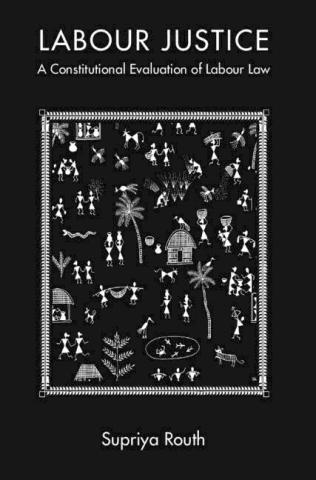
“Canada’s current approach to labour law is stuck in the past,” says Allard Law Professor Supriya Routh. “According to the Supreme Court, the goals of Canadian labour law are based on the ideas of justice and equality, but the structure and rationale of labour law hasn’t changed since the industrial revolution.”
Currently, what counts as “work” under the law doesn’t cover many types of labour, including unpaid and informal care work and environmental work, despite the social benefits of such work.
“Legal regulation, in the form of labour law, has historically only addressed a very selective component of workers’ contributions, where there is a contractual exchange between an employer and an employee,” says Routh. “The goal of my research is to develop a social justice-based approach to labour law that is able to address labour as a broader socio-political concern.”
Routh was recently awarded a Canada Research Chair in Labour and Social Justice to examine this issue – and how the law might come to recognize and better support workers who are engaged in a wider variety of socially and environmentally valuable work.
“One of the core objectives of labour law is to facilitate capitalist market exchanges by catering to the logic of private, self-interested reciprocity – wages in exchange for work,” says Routh. “This logic sidelines the broader social and ecological benefits of work. It’s because of the narrower focus on private reciprocity that labour law often struggles to effectively address emerging models of work and non-exploitative social and environmental contributions by workers.”
My hope is for a more expansive conceptualization of labour law that goes beyond the colonial model and that can meaningfully contribute to reconciliation and broader political discussions, beyond the regulation of work.
Routh notes that the differences between how Uber drivers have been legally classified in different jurisdictions – either as employees or as independent contractors – illustrate in some respects how current laws fail to account for the complexities of many modern forms of work. Classification as an employee or independent contractor can result in drivers gaining comprehensive employee entitlements or being completely excluded from legal protections, despite their contributions being the same in both cases.
“Alternatively, if we approach this same issue from a social justice rationale, we might recognize the drivers’ contributions to social development – such as mobility and transportation,” says Routh. Taking this perspective, “labour laws could entitle [drivers] to a range of resources and opportunities, collectively provided by corporations and the state.”
As part of his research, Routh is working with the Pehdzeh Ki First Nation in the Northwest Territories to better understand how they balance economic development with social and environmental wellbeing.
Routh is also currently writing a book on labour law reforms in the Global South, where labour law is increasingly extended to non-traditional workers and new types of working relationships. “Through these investigations, I’m hoping to understand how a more expansive narrative of labour law could be developed… [and to] shed light on the potentials and pitfalls of a modern approach to a more inclusive labour law,” says Routh.
Routh is also organizing a symposium, to be held this summer, on Restatement of Labour Law in Canada, which will “explore the possibilities of a postcolonial imagination of labour law.”
Looking ahead, Routh hopes his research will inform the debate on expanding labour laws – and that Canadian legislators and judiciary begin to think more broadly about the idea of work. “My hope is for a more expansive conceptualization of labour law that goes beyond the colonial model and that can meaningfully contribute to reconciliation and broader political discussions, beyond the regulation of work.”


